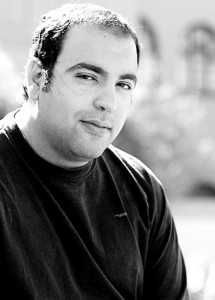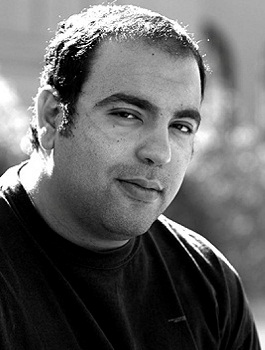
With every semblance of what is commonly referred to as “the civil forces” (the church representatives, the secular parties and members) withdrawn from it, the Egyptian Constituent Assembly’s fate seems more precarious than ever.
While many speculate about its fate and the fate of the constitution it is supposed to present to the public soon, it is safe to say that the current draft is not satisfactory for neither the Islamist nor secular factions, each believing that the constitution is too secular or too Islamist, respectively, because of the argument of the meaning of the word Shari’a in it.
Having followed its news with increasing boredom like the rest of you, I have reached a sense of moral clarity towards it: I don’t want the word Shari’a , or any amendment that refers to it, to be in our constitution. I want all of it, gone, and here are my reasons for this very unreasonable request.
First of all, I would like a solid definition of what Shari’a actually means from the Islamist side. I am willing to bet that if you gathered a representative from every Islamist political party and asked them for their vision and definition of Shari’a and what it means in terms of governance and implementation, they would come up with very different answers from each other.
Islamic jurisprudence and schools of thought is a vast field with many contradictory interpretations, hence why there are so many Islamist parties in existence in Egypt today: they all think the others understand or implement Shari’a the wrong way. If you think the secular side has problems uniting and unifying, then you should try uniting or unifying the Islamist side. It should be a hilarious experiment. They all think each other are extremists or infidels.
The constituent committee tried to side-step that by creating an amendment that states that Al-Azhar’s scholars should be the ones that interpret what Shari’a means and how it should be implemented, which brings us to the second reason behind my decision: I do not trust Al-Azhar with that role either.
It was an Al-Azhar scholar who came up with the Fatwa that would allow strange men and women to share office space if the women breastfeed the men. It was an Al-Azhar scholar who came up with the fatwa that any journalist that criticised Mubarak would get 40 lashes. Both cases were based on flimsy reasoning or interpretations for purposes of insanity in the former and corruption in the latter, and both came from Al-Azhar.
If we choose to ignore insanity for a second (despite having Islamist politicians who see nothing wrong with kidnapping a 14 year-old Christian girl and claiming she converted and marrying her off without parental consent, or others who see nothing wrong with having Al-Qaeda operating in Egypt as long as they don’t attack us), we will have to face the problem of corruption. Al-Azhar scholars can be as corrupt as any other institution in the fantastically corrupt entity referred to as the Egyptian state.
There are scholars who tailor fatwas for reasons ranging from gaining favor from whomever is in power, to whomever pays them more. Are they all like that? No, of course not, but given that fatwas are based on interpretation, a scholar could easily come up with two opposing fatwas based on the same “evidence”, which creates a very flexible environment for corruption to grow and prosper, in a land that already suffers from a corruption epidemic in its government. Here is another fun experiment: try to bribe Al- Azhar scholars for a tailored fatwa and see if he will have a problem with it.
This brings us to the final reason why I am against having Shari’a in our constitution: I don’t trust our government one bit, and I believe this distrust is commonly shared by Egyptians all over after the events of the past two years, especially after the Assiut school bus incident.
The question then becomes: how do you trust this fabulously corrupt government not to abuse its powers under the cover of Shari’a? Hell, my level of distrust in them is so high, I don’t even want them teaching our children religion in public schools, especially with an Islamist president in office.
Our public school teachers find it acceptable to beat up their students, cut their hair because they were not veiled, and have them clean their shoes, examples of which we all saw in the past few months, so do you trust those people to teach the next generation of Egyptians- your children- religion? Do you even trust them to not mess with the curriculum to have it suit their political ends?
I had no problem with keeping the Shari’a clause in the constitution before, but it has become increasingly obvious that the Islamist parties won’t just contend with having it there, but will increasingly try to use it to “fix us” , which is something I am totally opposed to. I am not the one who wants to sleep with children or who finds it acceptable to kidnap teenage girls and marry them off without the consent of their parents. I don’t need fixing, and neither do any of you.
The level of potential abuse of power that having even the word Shari’a in the constitution with the Islamists in charge is so high that I fear we will continue witnessing horrifying events, laws and justifications- like the ones we have been hearing for months- for years to come if it stays in its current form. So ask yourself this question today: does that seem like a country you want to live in?

